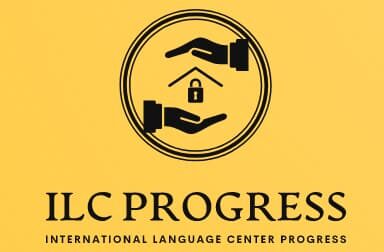Get advice from professional interpreters. It’s not easy, because when you’re just starting out, you don’t know what you don’t know. However, feel free to consult experienced colleagues, don’t go to random people with a ready thought for your future career. Our online translation courses can be a rich source of information and development for aspiring translators. For example, if someone tells you that knowing one foreign language is not enough to work as a translator, ignore it. If you know one foreign language and your native language well, you have every chance of becoming a translator. So listen to what other professionals have to say, but analyze the pros and cons well before you decide. The best thing to do is to join a local interpreters’ association. There you will be able to communicate with those who work in the market, which means you will get a professional opinion firsthand. Interpreter courses can give you the opportunity to meet translation professionals and maintain friendships with them to get the support you need.
Freelancers tend to be loners, but you’re better off having a steady circle of contacts, just because success is contagious. As the experience of our online translator course instructors shows, if you socialize with people who make minimum wage online, you’ll feel like it’s the norm. If you’re friends with translators who have the same level of financial security as people with full-time jobs, it seems normal, too. According to the teachers of our online translation school to find a mentor in today’s world is not so difficult, it is enough to subscribe to groups for translators in social networks, attend courses for translators, where you can meet people who also aspire to become translators, finding a formal or informal mentor is also a good option, as is forming a group of freelance beginners, who support each other and ask for advice from experienced colleagues. In fact, experts say that experienced translators tend to love being asked for advice or expertise. Take advantage of this!
Know how much you need to earn. It sounds trivial, but most translators won’t be able to tell you how many billable hours per week they need to reach their target income or how many words per week they need to translate to do so. According to our teachers at the translation school, it is important to keep a personal roster of clients, indicate the value of each order and calculate how much you have earned in a month. This way you can measure your income growth and constantly evolve. Set long term goals, and only when you start, decide for yourself how much you want to earn as a translator after you complete your online translation courses.
Know how much you need to earn. It sounds trivial, but most translators won’t be able to tell you how many billable hours per week they need to reach their target income or how many words per week they need to translate to do so. It is important to keep a personal roster of clients, indicate the value of each order and calculate how much you have earned in a month. This way you can measure your income growth and constantly evolve. Set long term goals, and only when you start, decide for yourself how much you want to earn as a translator after you complete your online translation courses.
Think about your business decisions. It’s unlikely that you’ll earn as much as a full-time job right away; it takes an average of 18 months to reach that level. Don’t expect to earn as much as you would in a full-time job once you’re interested in one translation agency. When you start training for translation courses, spend sparingly to make up for what you’re not earning yet; work part-time to pay the bills; or partner with big agencies that will give you as much work as you can take. The key is to make decisions thoughtfully, don’t panic if your bills go up each month, and don’t rush to get a high-interest credit card. The ideal is to work at your main job, start doing translations in your spare time and gradually build up your client base, and when you feel there is enough work to keep you busy for your desired work schedule, you can switch completely to freelancing. Note that fluency in a foreign language does not make a person a translator. A translator is a specialist who, in addition to knowing a foreign language, is able to select the right match according to the subject matter or level of formality of the text, properly execute documents, work with the translator’s auxiliary tools and the like. This is exactly what online translation courses are for, helping you gain the additional knowledge you need to start a successful career as an interpreter.
Many of us are so obsessed with the idea of “working not 12 hours, but with our heads” that we forget about the idea of “working hard.” It’s true that you shouldn’t do everything. But if you’re not yet on your feet, it’s okay to work harder than others. After graduating from an interpreter school, students often make the following mistakes: spending hours on the road for the sake of a 20-minute conversation with a potential client; making test translations for any agency where there’s even a remote chance of getting an order; going to interpreter conferences. Experts at online translation schools recommend that you systematically propose your candidacy to different agencies, start working only on a certain subject matter, and gradually, after attending additional specialized courses for translators, start working on other subjects.
